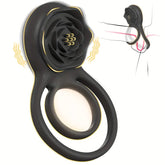What is Sexual Health?
Sexual health represents a state of physical, emotional, mental, and social well-being in relation to sexuality. This concept goes beyond the absence of disease or dysfunction. Understanding sexual health is crucial for overall well-being. It encompasses self-esteem, personal attractiveness, competence, and freedom from sexual dysfunction. Acknowledging the role of pleasure in sexual lives can significantly improve outcomes. Integrating this understanding into sexual health services and education promotes better practices and healthier relationships.
Understanding Sexual Health
Definitions and Key Concepts
WHO Definition
The World Health Organization (WHO) defines sexual health as a state of physical, emotional, mental, and social well-being in relation to sexuality. This definition emphasizes a positive and respectful approach to sexuality and sexual relationships. Sexual health requires the possibility of having pleasurable and safe sexual experiences, free from coercion, discrimination, and violence.
See also: How To Enhance Your Sexual Wellness With The Rose Toy
Components of Sexual Health
Sexual health includes various components that contribute to overall well-being. These components involve:
-
Physical well-being: Maintaining a healthy body and reproductive system.
-
Emotional well-being: Feeling confident and comfortable with one's sexuality.
-
Mental well-being: Having a positive attitude towards sexual experiences and relationships.
-
Social well-being: Engaging in respectful and consensual sexual relationships.
Historical Perspective
Evolution of Sexual Health Understanding
The understanding of sexual health has evolved significantly over time. In the past, societies often viewed sexuality through a narrow lens, focusing primarily on reproduction and moral values. However, modern perspectives recognize the importance of pleasure, consent, and mutual respect in sexual relationships.
Key Milestones in Sexual Health Awareness
Several key milestones have shaped the current understanding of sexual health:
-
1960s Sexual Revolution: This period brought significant changes in attitudes towards sex, emphasizing personal freedom and sexual expression.
-
1980s HIV/AIDS Epidemic: The global response to the HIV/AIDS crisis highlighted the need for comprehensive sexual health education and services.
-
2000s WHO Definition: The adoption of the WHO definition in 2006 marked a pivotal moment in recognizing the multifaceted nature of sexual health.
Physical Aspects of Sexual Health

Sexual Anatomy and Physiology
Male Reproductive System
The male reproductive system plays a crucial role in sexual health. This system includes organs such as the testes, which produce sperm and testosterone. The penis functions in both urination and sexual intercourse. The prostate gland produces seminal fluid, which combines with sperm to form semen. The proper functioning of these organs ensures reproductive capability and overall well-being.
Female Reproductive System
The female reproductive system is essential for sexual health and reproduction. This system includes the ovaries, which produce eggs and hormones like estrogen and progesterone. The uterus provides a nurturing environment for a developing fetus. The vagina serves as the birth canal and facilitates sexual intercourse. Maintaining the health of these organs supports fertility and general health.
Common Sexual Health Issues
STIs and Prevention
Sexually transmitted infections (STIs) pose significant risks to sexual health. Common STIs include chlamydia, gonorrhea, and HIV. Preventive measures, such as using condoms and getting regular screenings, can reduce the risk of contracting STIs. Intensive behavioral counseling has proven effective in promoting safer sexual practices. Public involvement in sexual health research helps address the impacts of STIs on reproductive health.
Contraception Methods
Contraception methods play a vital role in sexual health by preventing unintended pregnancies. Options include barrier methods like condoms, hormonal methods such as birth control pills, and long-acting reversible contraceptives like IUDs. Each method offers different benefits and effectiveness rates. Consulting healthcare providers can help individuals choose the most suitable option for their needs.
Emotional and Mental Aspects of Sexual Health

Psychological Well-being
Impact of Mental Health on Sexual Health
Mental health significantly influences sexual health. Anxiety, depression, and stress can negatively affect sexual desire and performance. Individuals with poor mental health may experience difficulties in maintaining healthy sexual relationships. Addressing mental health issues can improve overall sexual well-being.
Coping with Sexual Health Issues
Coping strategies play a vital role in managing sexual health issues. Seeking professional help from therapists or counselors can provide valuable support. Engaging in open communication about sexual concerns can reduce anxiety and improve relationships. Practicing self-care and mindfulness can enhance emotional resilience.
Relationship Dynamics
Communication in Relationships
Effective communication forms the foundation of healthy sexual relationships. Partners should discuss their needs, desires, and boundaries openly. Clear communication helps prevent misunderstandings and fosters mutual respect. Regular conversations about sexual health can strengthen intimacy and trust.
Consent and Boundaries
Consent represents a crucial aspect of sexual health. Both partners must agree to engage in any sexual activity. Respecting boundaries ensures that all parties feel safe and comfortable. Educating individuals about consent can promote healthier and more respectful relationships.
Social and Cultural Aspects of Sexual Health
Societal Attitudes and Beliefs
Cultural Differences in Sexual Health
Cultural traditions shape individual perspectives on sexual health. Values and beliefs, upbringing, religion, and spirituality influence how people define sexual health and perceive sexuality. For example, religious beliefs and family traditions often impact female sexuality. Conservative values may limit access to sexuality education and restrict knowledge about bodies and sexual pleasure. In contrast, mass media and social media play a significant role in nontraditional parts of the world. These platforms influence how women learn about and view their sexuality. However, access to information does not guarantee accurate sexuality education. Stereotypes and norms can distort understanding of sexuality, sexual pleasure, and consent.
Attitudes about sexuality vary widely among cultures. A survey across 24 countries revealed that 89% of Swedes see nothing wrong with premarital sex, while only 42% of Irish respondents share this view. In the Philippines, 93% believe sex before age 16 is always wrong, compared to 75% of Russians. Within a single country, opinions can also differ significantly. For instance, 45% of Spaniards think homosexuality is always wrong, while 42% believe it is never wrong.
Stigma and Sexual Health
Stigma surrounding sexual health remains a significant barrier. Many cultures attach shame and taboo to discussions about sexuality. This stigma can prevent individuals from seeking necessary information and healthcare. The sexual and reproductive health of LGBT+ individuals faces unique challenges. Issues like the ongoing HIV pandemic and binary organization of reproductive health services limit access to care. Stigma and repression further hinder LGBT+ individuals from obtaining the healthcare they need.
Sexual health requires a positive and respectful approach to sexuality and relationships. Achieving and sustaining sexual health involves respecting, protecting, and fully exercising the sexual rights of all people. Living in an environment that affirms and promotes sexual health is crucial for well-being.
Education and Awareness
Importance of Sexual Health Education
Sexual health education plays a vital role in promoting well-being. Comprehensive education provides individuals with the knowledge and skills to make informed decisions. Education should cover various aspects of sexual health, including anatomy, contraception, and consent. Proper education helps reduce the incidence of sexually transmitted infections (STIs) and unintended pregnancies. It also fosters healthy attitudes towards sexuality and relationships.
Sexual health education must address cultural and contextual factors. Gender norms, roles, and expectations significantly influence sexual health. Education should promote respect, safety, and freedom from discrimination and violence. Understanding the cultural context enhances the effectiveness of sexual health education.
Resources for Learning
Numerous resources are available for learning about sexual health. Schools, healthcare providers, and community organizations offer valuable information and support. Online platforms provide accessible and comprehensive educational materials. Books, articles, and videos can also serve as useful resources.
Engaging with diverse sources of information helps individuals gain a well-rounded understanding of sexual health. Seeking guidance from trusted professionals ensures accurate and reliable information. Continuous learning and open communication contribute to maintaining sexual health and well-being.
Sexual health holds immense importance for overall well-being. Understanding and prioritizing sexual health can lead to a healthier body, a satisfying sexual life, positive relationships, and peace of mind. Seeking information and support is crucial. Engaging with resources like healthcare providers, educational materials, and community organizations can provide valuable insights.
Maintaining sexual health involves continuous learning and open communication. Embracing a positive and respectful approach to sexuality fosters healthier relationships and enhances quality of life. Prioritizing sexual health empowers individuals to lead fulfilling lives.
To further enhance your sexual well-being, exploring products that promote pleasure and intimacy can be a great addition to your journey. Rose Toy products, known for their innovative design and high quality, offer a variety of options to help you achieve the sexual satisfaction and relaxation you deserve. Check out some of the top Rose Toy products available at Rose Toy Life:
-
Pink Rose Vibrator: A beautifully designed rose toy for women, offering precision stimulation and ultimate comfort.
-
Rose Adult Toy: This versatile product is perfect for those seeking a unique and satisfying experience, combining vibration and suction for enhanced pleasure.
-
Rose Dual Vibrator: A top choice among users, this rose toy for women delivers a combination of vibration and suction, offering a versatile experience tailored to individual preferences.
Explore these products to complement your sexual health journey and prioritize your pleasure and well-being!



